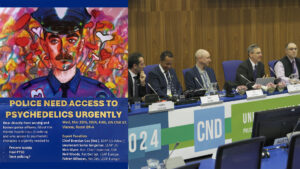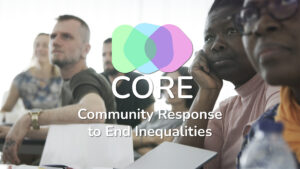Representatives of NGOs, government and police officials gathered yesterday at the National Drug Prevention Institute to discuss recent legal and financial controversies about harm reduction services in Hungary.
The roundtable discussion was initiated by the Drug Coordination Office of the Ministry of Youth, Family, Social Affairs and Equal Opportunities (MYFSAEO). Unfortunately the Ministry of Health and the Prison Administration, even if they were invited, did not participate in the meeting.
Dr. József Csorba (president of the Hungarian Narcological Association and head of the methadone clinic at the Nyírő Gyula Hospital, Budapest) said the director of the hospital stopped recruiting new clients to the program because the funding system of the National Health Insurance Institute fails to cover increasing treatment demands. Registration to the program is closed and applicants are set to waiting lists. This is outrageous in a country which has much lower coverage (5-10%) of methadon maintenance treatment among heroin injectors than Western European countries (30-60%), Dr. Csorba said. In addition, he emphasized that WHO adopted methadone to the list of essential medicines recently, so the programs should be scaled up rather than curtailed.
The representative of the Budapest Police (BRFK), Dr. Zsolt Sógor initiated a discussion on methadone supply for police detainees who have to endure cold turkey symptoms recently in Budapest jails (the only drug they get is Xanax). There is a succesful cooperation between the police and the methadon program in another town, Miskolc (North-East Hungary), where detainees are transfered to the methadone treatment site daily to get their dosages. However, this treatment is only for detoxification purposes, not for maintanence, and the daily transport is very expensive. Therefore dr. Csorba and HCLU suggest to train addiction experts to provide substitution treatment inside jails and other correctional facilities.
Needle exchange programs (NEPs) face similar difficulties. The government cut down the budget of treatment and prevention service providers (approx. with 40%) this year. Ilona Veres (coordinator of the Budapest Drug Prevention Foundation's NEP) said improper funding of NGOs endanger effective street outreach and needle exchange activities. Money transfer is often delayed and sometimes social workers do not receive their salaries for several months. Recently she had to buy 3000 syringes from her own salary to maintain supply for the clients. Ms. Veres said they will close the NEP if the government does not make urgent steps to change its funding policy.
Recently a new card system was developed in Budapest for NEP clients according to a treaty signed by NEP and police representatives. The agreement obligates police officers not to carry out criminal investigation activites in the surrondings of NEPs with the intention to arrest drug users and not to regard used syringes a clue to start criminal prosecution. The controversial part of the treaty is the agreement about used syringes. According to the position of the public prosecutor of Hungary, police have to start criminal investigation if they observe any object which "refers to the suspition of crime" (offical letter of the public prosecutor to the National Police Headquarters, 14 May, 2005). HCLU offered to organize trainings for law enforcement officials to educate them about the harmful social and health consequences of needle sharing practices and abandonded syringes on the street.
Katalin Felvinci, newly appointed commissioner of drug coordination (MYFSAEO) promised to do her best to improve the funding positions of harm reduction NGOs in the frame of the Social Care Act (developed now by the government). However, there is a need for political commitment from higher decision making levels to enlarge the budget and make the necessary modifications in health care legislation too.






